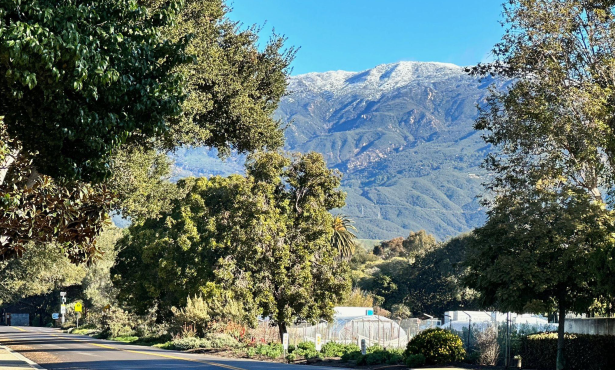Patently Offensive
Trouble with Transgenic Drift

Bad Recipe For Food System Security:
1. Combine Equal Parts Corporate Power, Lax Government Oversight, Short Term Bias of Capital Markets.
2. Stir in a Scary Secret Mystery Ingredient.
3. Bake in Climate Change.
4. Sprinkle Generously with Record Corporate Profits
5. (For Best Results, Let Stew in the Midst of a Deep Recession)
Genetically Modified Organism. Despite having been a part of our lexicon for about twenty years now, the term continues to raise significant controversy and concern among the U.S. public, scientists, and farmers. A June 2011 ABC News poll found that 93 percent of Americans believe that genetically modified foods should be labeled. If such foods were labeled, most people – 57 percent, by ABC’s numbers – would use such labels precisely to avoid them.
Despite consumer opposition, adoption of transgenic crops has been rapid in the U.S., but limited in the main to the major commodity crops, of which genetically engineered varieties now make up the vast majority: soybean (93% transgenic in 2010), cotton (88%) corn (86%), and canola (64%).
In Europe, on the other hand, the regulations on cultivation, importation, and marketing of GMOs are quite strict. Only two crops have been permitted and their already limited cultivation declined by 23 percent between 2008-2010, to a total of approximately 82,000 hectares (200,000 acres), as Austria, France, Germany, Greece, Hungary and Luxembourg banned the main EU-authorized crop, a Monsanto transgenic corn, and another (Bulgaria) banned all potential transgenic varieties.
Consumer antipathy means that GMO food crops command much lower prices in the marketplace than their conventional counterparts. To get a sense of what we’re talking about, head down to your local supermarket and check out the price difference between organic and non-organic milk. That cost differential you’ll see is reflecting the fact that the growth rate for organic foods remained in the double digits for the eleventh straight year in 2008.
USDA Organic rules of course strictly prohibit genetic engineering, and most export markets require testing and labeling. Conventional and organic farmers are acutely aware of these market dynamics, which explains why they are afraid that GMO pollen will inadvertently “drift” into their fields, cross pollinating with their non-GMO plants and reducing their value.
This also explains why 83 family farmers, family owned seed businesses, and agricultural organizations filed papers in federal court several months ago seeking legal protection from the threat of being sued by Monsanto for patent infringement should their product ever become contaminated by GMO material. This lawsuit probably portends a trend. Farmers are likely to increasingly turn to the legal system for recourse from the financial impacts of GMO genetic drift. I know I’d certainly sue if my neighbor he devalued my home with chemicals that most people consider poison.
As such lawsuits make their way through the courts, it is nearly inevitable that the corporations who hold the patents on these crops will be on the hook for costs associated with the “responsible” use of their products. In the past two decades, the agricultural biotechnology industry emerged through the rapid acquisition of existing seed firms by chemical and pesticide companies such as Monsanto, DuPont, Syngenta and Dow. If these multi-national chemical companies were to be held liable for costs associated with the predictable release or poor results of their products, shareholders would see their accounts dramatically reduced.
How dramatically?
We don’t know.
Why don’t we know?
Because the companies don’t disclose enough information for us to make accurate calculations.
The patents that these companies own provide control of their research and as such, academics cannot do any independent research. Further, even if they can get permission to test the seeds, the corporations retain the right to deny right to publish if they wish. This particularly matter in an era of climate change, “superweeds,” and super pests.
From the data we do have however, the potential liabilities seem scary. Like a billion dollars scary.
Take for example the LibertyLink rice case in which 10,000 rice farmers recently settled for $750 million after it was found that Bayer-patented GMO rice escaped from a test plot and was found to have caused widespread contamination. I heard estimates Bayer could have been on the hook for well over a billion dollars, so they might have gotten off easy this time.
And then there was the Starlink GMO corn that was discovered in the US food supply in 2001. That corn was approved for animal feed but not human consumption because of allerginicity. The estimated overall cost of this major contamination debacle to Aventis CropScience, StarLink’s developer, as well as farmers and the food industry, has been estimated at $1 billion. Glad I didn’t own that stock back in 2000!
Those sorts of liabilities seem like something any investment professional ought to take into consideration when considering an investment, right? Well, very few do.
The environmental and social risks that associated with irresponsible corporate behavior are too often regarded as “extra financial” considerations by those within the finance industry. Ironically, “extra financial” too often takes on a different connotation once they are actually realized in the form of a disaster or lawsuit – as in “extremely costly.”
To go down a brief list of some recent lawsuits that wiped out shareholder value due to corporate irresponsibility:
• In a June, 2011 ruling indicating that good business ethics are worth more than karma points, a court ruled that Quest Diagnostics will have to pay $241 million to settle a suit charging the laboratory with overbilling California state medical patients.
• Novartis Pharmaceuticals Corp. shareholders – many of them no doubt women – were probably pretty bummed to learn they will be paying $175 million to resolve a gender discrimination class action.
• GlaxoSmithKline recently settled for $750 million to put a False Claims Act case behind it. The company faced allegations that it had manufactured and distributed defective and adulterated drugs. Do you even know if GSK is in your portfolio? There’s a good chance it is (unless your investment advisor divested for related issues a few years ago.)
Costly lawsuits like these can do real damage to a portfolio. That is why the firm that I work for, Harrington Investments, has just partnered with Pesticide Action Network of North America to file a shareholder resolution asking Monsanto Corporation to publish a study on financial risks associated with transgenic drift. If the resolution gets enough support at next year’s annual meeting, Monsanto executives will hopefully feel pressured to help shareholders and citizens alike better understand some of the risks associated with their products.
It would be a small step in the right direction, but a step nonetheless. In our firm’s nearly thirty-year history of advocating for greater corporate responsibility, we’ve learned that small victories can result in significant improvements in the lives of real people and the quality of important ecosystems.
Jack Ucciferri is the Research and Advocacy Director and Associate Portfolio Manager for Harrington Investments, a socially responsible investment advisory firm. He currently serves on the Board of the Fund for Santa Barbara, and the Advisory Board of Project Wave of Optimism. He received an MA from the Global and International Studies Program at UCSB.



